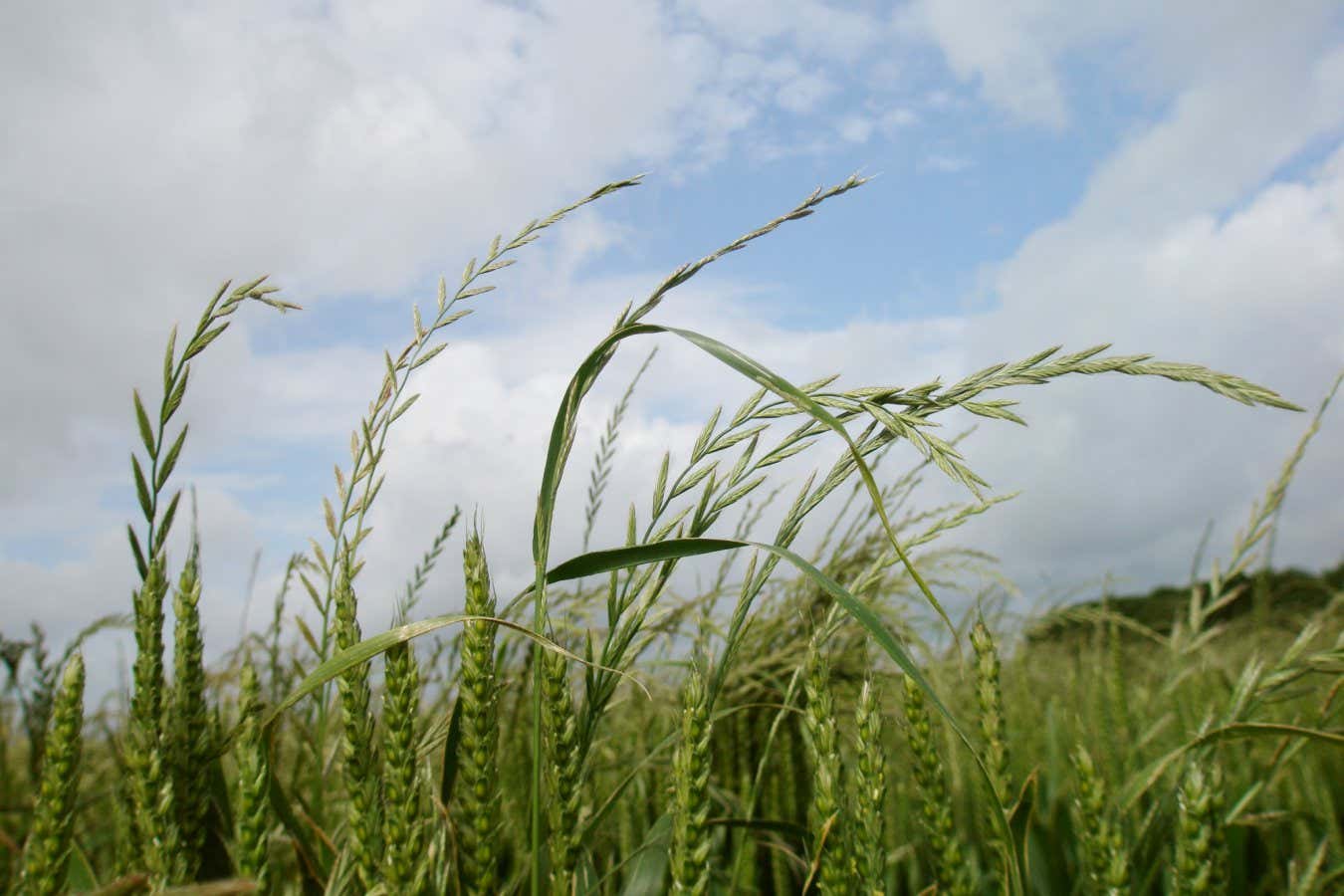The herbicide glyphosate is helping farmers adopt more environmentally friendly practices, and resistant weeds will make this transition more difficult, experts say
By Michael Le Page
10 January 2025
Italian ryegrass is a common weed in arable crops
John Cussans
Weeds resistant to the herbicide glyphosate have found been found in the UK for first time. The species in question, called Italian ryegrass, is very widespread in the UK, but specimens impervious to the chemical have only been found on one farm in Kent.
Glyphosate has been helping farmers adopt more environmentally friendly farming practices known as regenerative agriculture, says John Cussans, a weed management expert at consultancy firm ADAS. His team confirmed that the plants were resistant in tests in a greenhouse.
“It may affect our ability to transition our farming system,” says Cussans. “Herbicide resistance to glyphosate is a very significant practical problem on a farm.”
Advertisement
In the UK, farmers use glyphosate mainly to clear all plants in a field before planting seeds. This allows them to avoid ploughing, which damages soil health, increases erosion and reduces carbon storage.
Minimising soil disturbance is one of the key planks of regenerative agriculture, along with crop rotation and maintaining ground cover.
“Glyphosate is relatively environmentally benign compared to other agrochemicals,” says Helen Metcalfe at Rothamsted Research in Harpenden, UK. “It shows very little bioaccumulation and low toxicity. And it supports regenerative practices like minimum tillage, which is really great for soil health. It can actually have environmental benefits compared to some of the alternatives.”
